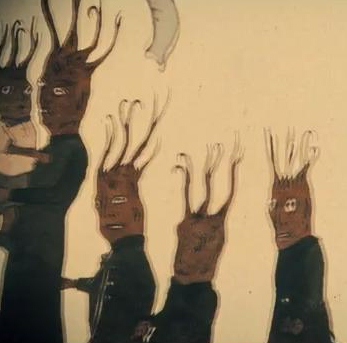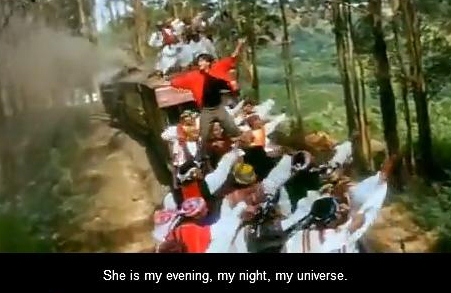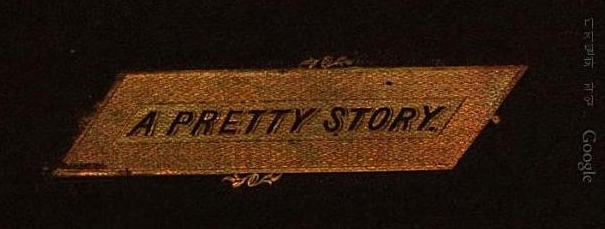The Daleks from Dr Who have gone New Age. Check it out.
Now don’t you feel relaxed?
Fidel Castro escribió un ensayo entitulado "El mundo maravilloso del capitalismo" que parece ser un chiste estilo "primer día de abril." Se presta de el conjunto de imágenes del movimiento "Occupy…" pero con la retórica hiperbólica típica del líder cubano. Lo chistoso: "¡Verdad compatriotas que el capitalismo es cosa maravillosa! Quizás nosotros seamos culpables de que cada ciudadano no tenga un submarino particular en la playa."
A Japanese company is making cute cat ears controlled by your thoughts. Really.
And they say Japan is in permanent recession… if this is what a society in permanent recession comes up with, well, then… bring it on. I seem to vaguely recall reading about something like this in William Gibson's novel, Count Zero, way back in the late 1980's.
Meanwhile, this blogging at Scientific American reveals the gaps in current neuroscience, despite achievements like the nekomimi above: "Neuroscientists: We don't really know what we are talking about, either." Ehrm… for the gullible, please note the April 1st dateline on the posting.
A very cute story.
Childhood of a Circle from Kadavre Exquis on Vimeo.
Archibald, a creature to whom nothing ever happens sees his routine changed by the arrival of a mysterious circle.
-contact: fgsohn@gmail.com
-Directed and Animated by Kadavre Exquis
https://kadavrexquis.com/
-More to discover on facebook:
https://www.facebook.com/Kadavrexquis
-Sound design by John Kassab
https://www.johnkassab.com/
-Voice over by Julian Smith
https://julianaubreysmith.com/
-Foley sounds by Adrian Medhurst
Music by Kadavre Exquis & guests
Get the Full soundtrack of 11 tracks, the poster, the full film, and other goodies here: https://kadavrexquis.bandcamp.com/album/childhood-of-the-circle-ost
Making Of :
https://kadavrexquis.com/Childhood-of-a-Circle-Landscapes
https://kadavrexquis.com/Childhood-of-a-Circle-Landscapes-II
This is pretty cool. Some guy in Melbourne. I couldn't ever dream of doing such a thing, but it's fun to watch.
I'm feeling stressed lately.
I ran across this amazing diagram of pie charts of Van Gogh’s use of color, by Arthur Buxton. [UPDATE: website died, link is dead. Yay internet!]
 Tyler Cowen at the Marginal Revolution blog pointed me to this article at Huffpost, alleging that military-style drone helicopters will soon be used to deliver tacos that can be ordered on the internet. Somehow I doubt they’ll deliver to Korea. And Wired says it’s a hoax.
Tyler Cowen at the Marginal Revolution blog pointed me to this article at Huffpost, alleging that military-style drone helicopters will soon be used to deliver tacos that can be ordered on the internet. Somehow I doubt they’ll deliver to Korea. And Wired says it’s a hoax.
It would be nice to see the drone technology used in a manner less destructive of human life than our current Space Emperor‘s usages.
 I just watched a movie called “Colossus: The Forbin Project.” It’s a Strangelovesque, understated science-fiction movie from 1970. It’s not quite as over-the-top satirical as Dr Strangelove – It’s more subtle, and perhaps more dystopian… or utopian – depending on how much stock you own in Google Corp., Facebook, and their brethren. Rather than waiting for me to try to explain that joke, I recommend you watch the movie.
I just watched a movie called “Colossus: The Forbin Project.” It’s a Strangelovesque, understated science-fiction movie from 1970. It’s not quite as over-the-top satirical as Dr Strangelove – It’s more subtle, and perhaps more dystopian… or utopian – depending on how much stock you own in Google Corp., Facebook, and their brethren. Rather than waiting for me to try to explain that joke, I recommend you watch the movie.
…Not the space agency: the hip hop muscial collective. It stands for “North America/South America.” Very inclusive.
What I’m listening to right now.
N.A.S.A. (feat. David Byrne, Chali 2na, Gift of Gab, Z-Trip), “The People Tree.”
 I originally started watching these N.A.S.A. videos for the surreal animation – they’re all very interesting, each different, mostly creepy, but well-done. So don’t watch just this one video – there are lots of incredible videos. Note, however – all of these videos have vignettes in them that would qualify as thematically NSFW.
I originally started watching these N.A.S.A. videos for the surreal animation – they’re all very interesting, each different, mostly creepy, but well-done. So don’t watch just this one video – there are lots of incredible videos. Note, however – all of these videos have vignettes in them that would qualify as thematically NSFW.
But I really like the music, too.
Here are some other videos I liked.
N.A.S.A. “Watchadoin.”
N.A.S.A. “Strange Enough.” This video doesn’t seem very well connected with the song, but maybe I just don’t understand the song.
N.A.S.A. “Money.”
N.A.S.A. “O Pato.” “O Pato” translates as “The Duck” from Portuguese.
 Christopher Walken reads Where The Wild Things Are – most excellently. Actually, as some commenters at the youtube have observed, it’s probably not actually Christopher Walken, but someone doing a pretty good impression. That’s OK. It’s funny and well-done.
Christopher Walken reads Where The Wild Things Are – most excellently. Actually, as some commenters at the youtube have observed, it’s probably not actually Christopher Walken, but someone doing a pretty good impression. That’s OK. It’s funny and well-done.
I have a lot of work to do. I’m descending into the workaholism I associate with states of denial.
This may be the world’s coolest bookstore. I saw a mention of it, with pictures, at the My Modern Met website.
 They (who? scientists…) are building cyborg snails, according to this article. This is very interesting.
They (who? scientists…) are building cyborg snails, according to this article. This is very interesting.
What I’m listening to right now.
Little Dragon, “Twice.” I guess it’s a trailer (or pilot) for a film to be entitled “Drömmar Från Skogen,” too. I like the video.
I’ve been spending a great deal of time on visual arts websites like my modern met or empty kingdom. I love sites like these.
I’m not sure what I’m doing or looking for, exactly. I have certain vague aspirations in the field of visual arts, undeniably, but they’ve been largely dormant. I find striking images or ideas on these sites, and enjoy the variety of them. Just as an almost random sample, here below is a graphic image I rather liked for its visual simplicity and yet difficult-to-understand referentiality, by an artist named Aaron Hogg.
This wacky meme is ancient in internet terms, and I remember running across it a few years ago, but I didn't blog it at the time. I ran across it again recently, and, although it's in horribly poor taste, it really did make me laugh several times. So, without further ado, here is… Rainbow Stalin.
Similou, "All This Love."
Here's Ira Glass (who I'm not always a fan of, but, well…) on the topic of creativity, with a creative accompanying animation by someone named David Shiyang Liu.
Is it possible for me to follow this advice? I did some writing today, but when it comes to the recommended focus on volume, I'm not really doing that well. My perfectionism (or my "taste" as Glass calls it) is too annoyingly interfering.
Here's a scary technology – some Japanese company is developing a device that can be pointed at someone, gun-like, and stop that person from talking. Here's a discussion of it, at Language Log.
Walking home I stopped by my bank's ATM to take out some cash, and it occured to me that I hadn't updated my bankbook in a long time. I don't receive mailed bank statements for my Korean bank account(s), and I don't have online banking configured, although I reckon if I tried, I could get either of those things set up. I just never bothered to. So if I need to get a list of transactions, Korean ATM's have a function where you insert your savings/check-card passbook into the machine and it prints updated transactions into the passbook. I stuck my passbook into the machine and it printed 5 months' worth of transactions. There weren't any surprises – the only reason I'm mentioning this is because it was really surprising to me that I'd not done so in so long – time has really been flying by quite fast since I came back to Ilsan from my sojourn in Yeonggwang.
What I'm listening to right now.
Morphine, "The Night."
 This is the recreational philosophy blogentry-du-jour.
This is the recreational philosophy blogentry-du-jour.
Let’s see if I can explain this. “Occam’s Razor” is the “law of succinctness” in philosophy, the dictum that given a simpler and more complex explanation for something, the simpler is better, all other things being equal. So this philosopher named John Holbo, blogging at Crooked Timber, coins “Occam’s Phaser,” in which he suggests, “Do not compound the silliness of your examples beyond necessity.” This is due to one of those trolleological parables which he encountered while reading something by Nozick.
Personally, I agree with some of the commenters, who point out that the humorousness of these philosophical examples and stories is part of the point of them – I would suggest that, in discussing awkward or unexpected ethical or philosophical intuitions, these resorts to humor can help “disarm” us, vis-a-vis our preconceptions. They lower our defenses, thus enabling a more objective self-reflection.
Still, in all, I understand his point. Why suggest an outlandish situation that relies on impossibilities, when realistic examples meeting the same criteria (from a philosophical standpoint) are feasible? Perhaps because the philosophers aren’t as comfortable with their conclusions as they’d like to hope.
And beyond that, I love the name – the label – that he’s given to his new principle of trolleological plausi-parsimony: Occam’s Phaser. Occam, of course, would have a blue shirt – he’d be a science officer, right?
John Holbo, incidentally, is someone who offers change you can really believe in (which is to say, I was delighted by the below image, which is one of his compositions):
 I once studied Chinese for a few months. And, being a perennial if rather unsuccessful student of the Korean Language, I am also constantly exposed to the more than 60% of vocabulary in Korean that is of Chinese origin. I have not, however, ever really seriously been drawn to trying to learn Chinese the way that other languages have interested me.
I once studied Chinese for a few months. And, being a perennial if rather unsuccessful student of the Korean Language, I am also constantly exposed to the more than 60% of vocabulary in Korean that is of Chinese origin. I have not, however, ever really seriously been drawn to trying to learn Chinese the way that other languages have interested me.
Nevertheless, this is really interesting, from a “wacky language” standpoint. Below is a poem in Chinese. I can’t read it – though I recognize a few characters (while giving them Korean pronunciations).
施氏食獅史
石室詩士施氏,
嗜獅,誓食十獅.
氏時時適市視獅.
十時,適十獅適市.
是時,適施氏適是市.
氏視是十獅,恃矢勢,
使是十獅逝世.
氏拾是十獅屍, 適石室.
石室濕, 氏使侍拭石室.
石室拭,氏始試食十獅屍.
食時, 始識十獅屍,
實十石獅屍.
試釋是事.
Simple enough. Now here’s a translation.
Story of Shi Eating the Lions
A poet named Shi lived in a stone room,
fond of lions, he swore that he would eat ten lions.
He constantly went to the market to look for ten lions.
At ten o’clock, ten lions came to the market
and Shi went to the market.
Looking at the ten lions, he relied on his arrows
to cause the ten lions to pass away.
Shi picked up the corpses of the ten lions and took them to his stone room.
The stone room was damp. Shi ordered a servant to wipe the stone room.
As the stone den was being wiped, Shi began to try to eat the meat of the ten lions.
At the time of the meal, he began to realize that the ten lion corpses
were in fact were ten stone lions.
Try to explain this matter.
Strange poem, but nothing too weird, right?
But… now here’s the romanized transcription of the Chinese – the digits at the end of each syllable represent the 4 tones.
shi1 shi4 shi2 shi1 shi3
shi2 shi4 shi1 shi4 shi1 shi4,
shi4 shi1, shi4 shi2 shi2 shi1.
shi4 shi2 shi2 shi4 shi4 shi4 shi1.
shi2 shi2, shi4 shi2 shi1 shi4 shi4.
shi4 shi2, shi4 shi1 shi4 shi4 shi4 shi4.
shi4 shi4 shi4 shi2 shi1, shi4 shi3 shi4,
shi3 shi4 shi2 shi1 shi4 shi4.
shi4 shi2 shi4 shi2 shi1 shi1, shi4 shi2 shi4.
shi2 shi4, shi1, shi4 shi3 shi4 shi4 shi2 shi4.
shi2 shi4 shi4, shi4 shi3 shi4 shi2 shi2 shi1 shi1.
shi2 shi2, shi3 shi4 shi4 shi2 shi1 shi1,
shi2 shi2 shi2 shi1 shi1.
shi4 shi4 shi4 shi4
Far out. [Source – yellowbridge. It is also discussed in the wikithing.]
I was in one of my random internet-surfing modes that I sometimes get into, and ended up watching the video below. I sometimes consider that India is a country near the top of my list of countries that I would consider “moving to next” if I give up on this “South Korean project.” The natural scenery in the video (Ooty, Tamil Nadu state in South India) reminds me, vaguely, of some train trips I took in southern/eastern Mexico in the 1980s, or, also, the tropical setting that is my mother’s home in the Atherton Tablelands of Far North Queensland, Australia.
 The video is interesting in part because it was apparently a low-budget, no-special-effects undertaking – those people dancing on the train are really just people dancing on a moving train (picture at right). The song, like most Indian hits, is Bollywood in origin, but according the wikithing article about the song, its lyrics come from a Sufi folk tradition. Which perhaps incidentally explains why I ended up discovering the video due to an article somewhere about Urdu, not Hindi (Urdu [Pakistan] and Hindi [India] are dialects of essentially the same language, often mutually comprehensible). But the video and song are clearly Hindi, although the setting of the video is South India (Tamil Nadu) which is neither Hindi nor Urdu, culturally.
The video is interesting in part because it was apparently a low-budget, no-special-effects undertaking – those people dancing on the train are really just people dancing on a moving train (picture at right). The song, like most Indian hits, is Bollywood in origin, but according the wikithing article about the song, its lyrics come from a Sufi folk tradition. Which perhaps incidentally explains why I ended up discovering the video due to an article somewhere about Urdu, not Hindi (Urdu [Pakistan] and Hindi [India] are dialects of essentially the same language, often mutually comprehensible). But the video and song are clearly Hindi, although the setting of the video is South India (Tamil Nadu) which is neither Hindi nor Urdu, culturally.
Well, I’m kind of rambling. If I went to India, the South and Northeast are the parts that most interest me.
As a digression… I once came rather close to taking a month-long trip to Kerala (in the South), when I was still considering myself a computer professional. The story was that I’d worked out that, in net financial terms, it would cost me the same to fly to India and enroll in an Indian computer certification program as it would to stay in the US and get a much higher-priced but precisely identical (content-equivalent) certification. So I was going to go to Kerala and become a Microsoft Certfied Database Administrator, or something in that vein.
I never went to India. But I still think about it. My current status as an EFL teacher doesn’t really “work” for India – India has plenty of EFL, of course (it’s an official language, still, even), but it’s so large and so “self contained” in EFL terms that they’re mostly uninterested, as far as I can tell, in foreign native English speakers (especially American-accented ones) – there seems to be no market for my type of work, there. So if I went, I guess it would just be as some kind of long-term tourist. Or else something like the above, where I was trying to break back into computer work.
What I’m listening to right now.
Malaika Arora and King Khan, “Chaiyya Chaiyya.”
I like the somewhat obscure, almost mysteriously ominous ending of the video – perhaps a reference to the movie from which the song is taken, or some other pop-culture reference that is lost on me.
Do you like creepy rock videos about aliens doing strange stuff with reality? Or something?
What I’m listening to right now.
Tool, “Parabola.”
[UPDATE 2014-01-06: the youtube link was broken. I replaced it.]
[UPDATE 2024-05-03: the youtube link was broken again. I replaced it again.]
 … I’m referring to the need to know how much it would cost to build the Death Star. When it comes to building a Space Empire, it’s always better to start planning early.
… I’m referring to the need to know how much it would cost to build the Death Star. When it comes to building a Space Empire, it’s always better to start planning early.
And tangentially, this.
Why does it take The Onion to provide genuine insight into the other point of view in the alleged Iranian nuclear crisis?
TEHRAN—Amidst mounting geopolitical tensions, Iranian officials said Wednesday they were increasingly concerned about the United States of America's uranium-enrichment program, fearing the Western nation may soon be capable of producing its 8,500th nuclear weapon. "Our intelligence estimates indicate that, if it is allowed to progress with its aggressive nuclear program, the United States may soon possess its 8,500th atomic weapon capable of reaching Iran," said Iranian foreign minister Ali Akbar Salehi, adding that Americans have the fuel, the facilities, and "everything they need" to manufacture even more weapons-grade fissile material. "Obviously, the prospect of this happening is very distressing to Iran and all countries like Iran. After all, the United States is a volatile nation that's proven it needs little provocation to attack anyone anywhere in the world whom it perceives to be a threat." Iranian intelligence experts also warned of the very real, and very frightening, possibility of the U.S. providing weapons and resources to a rogue third-party state such as Israel.
바늘 도둑이 소 도둑이 된다
needle thief-SUBJ cow thief-SUBJ becomes
A needle thief [eventually] becomes a cow thief.
 This wasn’t to hard to translate – the verb is simple, the nouns straightforward. But what does it mean, proverbially? It’s the slippery slope argument, or the “gateway drug” argument. Starting small will still lead to perdition. Possibly true.
This wasn’t to hard to translate – the verb is simple, the nouns straightforward. But what does it mean, proverbially? It’s the slippery slope argument, or the “gateway drug” argument. Starting small will still lead to perdition. Possibly true.
I think the literal version of this would make an interesting short story, about a needle thief becoming a cow thief – better yet, while retaining his virtue. Or maybe a cow-thieving alien, who started out as a needle-thieving alien (see right).
I was reading an article in the wikithing entitled “Principles of Learning.” I don’t really think it’s a well-done article – it’s quite unclear where the “objectivity” (that wikipedia strives for) stops and the author’s opinions related to the theory being expounded start. In fact, it’s not even clear on a cursory read that it’s a theory rather than objectively proven information. Much of “education theory” is rather like this, however. I find particularly bizarre the oddly specific reference to “aerospace instruction” in the header – this makes me think that a better title for the article might be “Principles of Aerospace Instruction.” Yet the article is highly general in its approach – it has the appearance of a generalized theory of pedagogy.
Nevertheless, despite this, I find the statement below highly quotable, and it may form a core idea of my own teaching philosophy – at least on good days (of which I’ve not had many, lately, to be frank).
The principle of freedom states that things freely learned are best learned. Conversely, the further a student is coerced, the more difficult is for him to learn, assimilate and implement what is learned. Compulsion and coercion are antithetical to personal growth. The greater the freedom enjoyed by individuals within a society, the greater the intellectual and moral advancement enjoyed by society as a whole.
Since learning is an active process, students must have freedom: freedom of choice, freedom of action, freedom to bear the results of action — these are the three great freedoms that constitute personal responsibility. If no freedom is granted, students may have little interest in learning.
 I have recently been exploring googlebooks. There are some interesting and unusual out-of-copyright materials there. This morning I have been perusing a text by someone named Francis Hopkinson entitled “A Pretty Story,” originally published in 1774 and reprinted (I suspect from the original proofs since the text is full of 18th century typography not matching the 1860’s edition date).
I have recently been exploring googlebooks. There are some interesting and unusual out-of-copyright materials there. This morning I have been perusing a text by someone named Francis Hopkinson entitled “A Pretty Story,” originally published in 1774 and reprinted (I suspect from the original proofs since the text is full of 18th century typography not matching the 1860’s edition date).
The story is a sort of political allegory, a rather thinly veiled account of the colonization of North America by the British, and relevant to the impending American Revolution (note that Hopkinson was apparently a signer of the Declaration of Independence).
I think I enjoy reading texts such as these as much for their archaic style and language as for the actual content, although making cultural comparisons of the then-to-now sort, in the style of a time-traveling anthropologist, is fun too.
On a technical side, I’d like to rant.
<rant>
Googlebooks’ interface annoys me, because it keeps reverting to Korean Language, because of my IP address. I’m not opposed to using the Korean interface, per se, but I see it as a technical glitch whenever default language of web sites is driven by the geotagging information attached to the user’s IP address when so much other information is available to the browser (e.g. my computer’s preferred language setting, my browser’s preferred / installed language, not to mention the language of the text being viewed – why would someone viewing an 18th c. political tract written in English not prefer [or at the very least, not be uncomfortable with] an English language web interface?). I especially resent internationalized web content that fails to offer a clear control to change languages when viewing the page. Googlebooks apparently doesn’t like to offer this option clearly on their page – although, if you scan it carefully, the extended URL contains a language flag, but even when you toggle this manually (changing the “ko” to “en”), the page nevertheless reverts if you follow any in-site links.
</rant>
Here are some screenshots from this archaic text.
The introduction, below.
First page, below.
I like the old-style “long s” in the word possessed (roughly, “poffeffed”).
Recently I was listening to an NPR radio show called On Being – it was an episode called “Becoming Detroit,” about a new/old urbanist kind of movement in Detroit, the capital of American decadence. One of the people being interviewed in the show was named Wayne Curtis, and he quoted a bit of poetry, somewhat informally. I have no idea if it’s his poetry, or someone else’s – if it’s someone else’s, I was unable to google an attribution. But it stuck with me:
“One day I forgot name, age, sex, religion, address. I found myself.”
Not that I did that. It was just a sort of short conceptual bit of text that stuck with me. I’m kind of down lately.
This concept of “self-deportation” has come to the fore of the political debate recently due to the new law in Alabama (profiled in the radio show “This American Life” recently, for example) and references made by certain Republican candidates for the presidency. But it’s interesting that the term was not invented by the right, but rather by the left, in the form of satire: there was a group of Latino activists in LA who formed a sort of social-satire political campaign against California’s proposition 187 in mid the 1990’s. I would credit the term “self-deportation” to brilliant cartoonist and satirist Lalo Alcatraz (sample of his work below).
I’m intrigued by this way that satirical ideas become “real” ideas coopted by the opposite side in political debates. Notably, Colbert has been exploring this, in a sort of “push” approach with his conservative blowhard impersonation.